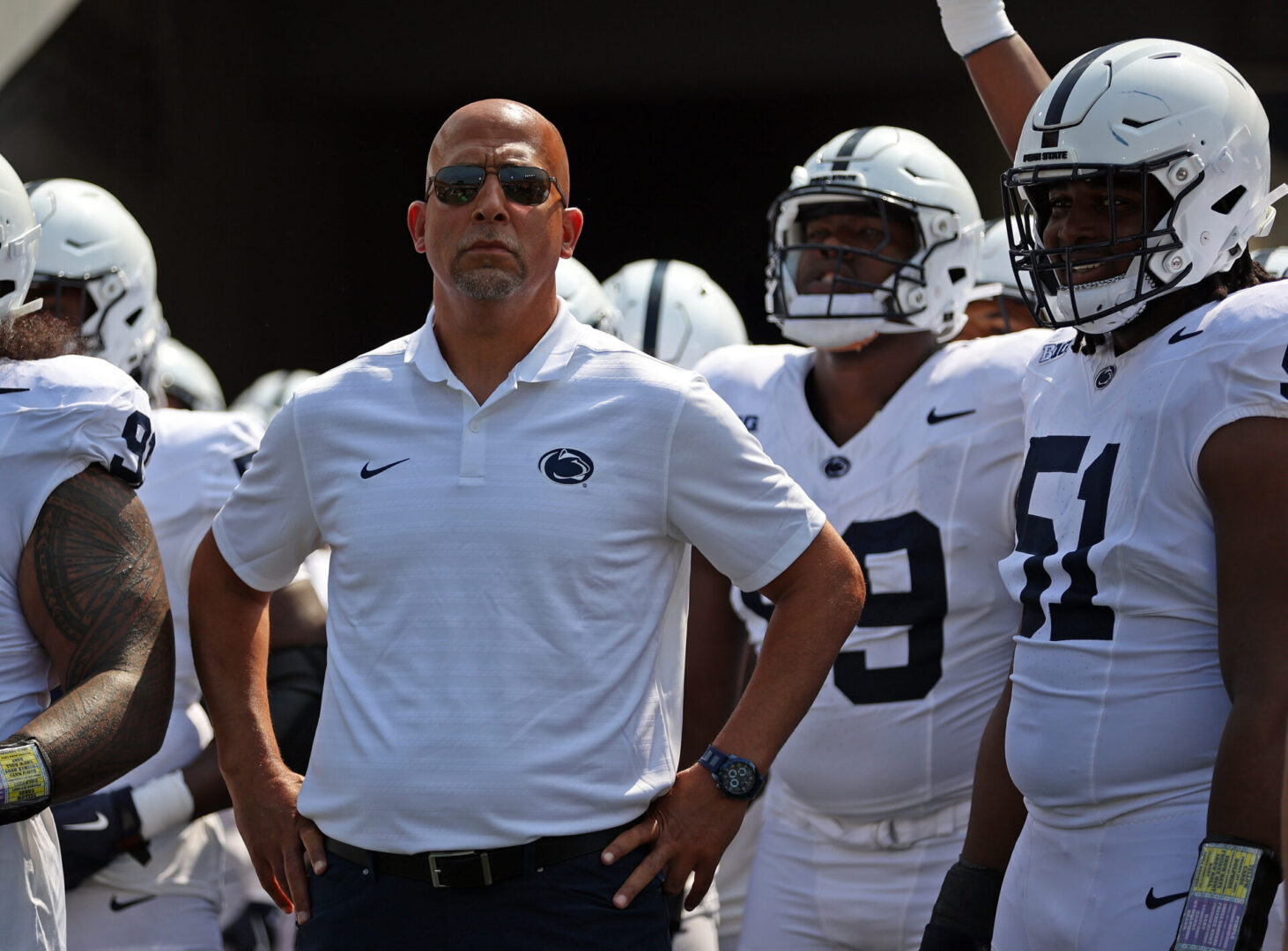James Franklin knows it as well as any power-conference coach in the country. With an expanded Big Ten and 12-team College Football Playoff, there comes less of a reason to schedule tough non-conference opponents. That could disappoint traditionalists who crave unique and regional rivalries, but if it gets Penn State into the playoff, Franklin isn’t wavering.
The goal is to create as many opportunities for guaranteed wins early in the season and let the strength and success of the conference schedule dictate the argument for a playoff bid. That’s why the Nittany Lions are paying $1.6 million, per PennLive, to play against Kent State, which has won just 35 times in the previous 10 seasons. It’s a gimme.
The challenge for athletic departments will ultimately center on how many “buy games” against teams like the Golden Flashes they’re willing to book, given the cost of scheduling and lack of revenue from parking, concessions and souvenirs compared to contests against more competitive opponents. The challenge for Franklin is not losing those games.
“When you schedule these opponents, typically five and seven years out, you don’t know what you’re going to get,” Franklin said. “You schedule a MAC team, and some of the teams that you just mentioned have caused people fits, and then you can get to a year where someone’s struggling. So that’s unpredictable and challenging.”
Notre Dame followed the same scheduling script: pay Northern Illinois $1.4 million for what was believed to be a guaranteed win that would help boost playoff hopes ahead of a more challenging late-season slate. Only, the Fighting Irish fell 16-14, costing them a loss, a hefty fee and lost revenue from game day accessories.
Penn State nearly bit the same bullet against Bowling Green. The program paid $1.5 million for that game, lost revenue from game day accessories and only scratched out a 34-27 victory.
There’s a clear strategy in scheduling “buy games” against a team like Kent State, but if a win doesn’t follow that could put the athletic department in a bind. The pressure is on Franklin and his players to do what Tennessee did to the Golden Flashes in a 71-0 victory last weekend, and that’s win dominantly and get reps to his young talent.
“There’s a lot of teams across the country that are sad Saturday night, and you want to do everything you possibly can to make sure you’re not one of them,” Franklin said. “And it doesn’t always come from an opponent that the fans and the media and the locker room think it’s going to come from.”
What the future holds for “buy games”
Everything revolves around money, and that will only continue. Soon enough, programs will be tasked with paying players directly, and that money has to come from somewhere. Tennessee has already announced it will add a 10% “talent fee” on all football tickets, starting next season, to help fund proposed revenue sharing with its players.
It’s expected that programs across the country will follow in the footsteps of the Volunteers. But will fans and athletic departments alike be willing to pay up for games against teams like Kent State when money is already so crucial? That’s the question.
Penn State is currently in the midst of a $700 million renovation of Beaver Stadium all while paying for guaranteed wins, building a fund to play players and playing for a shot at a national title. For the most part, other Big Ten teams are in the same boat.
Despite the attraction for “buy games,” it’s becoming an inevitable concept that all regular games will be meaningful contests with boatloads of money to be made.
“The challenge that you’re going to have with that, which I think is what the commissioners were working on, is you’re also going to get to the point where all of the games are going to be SEC versus SEC and Big Ten versus Big Ten,” Franklin said. “And where does that leave you? Because you’re playing really good teams week in and week out.
“We just want to make sure that later in the season you can make an argument for some SEC and some Big Ten teams with multiple losses, maybe getting in the playoffs, over some conferences with maybe single losses, just based on the strength of both conferences.”



